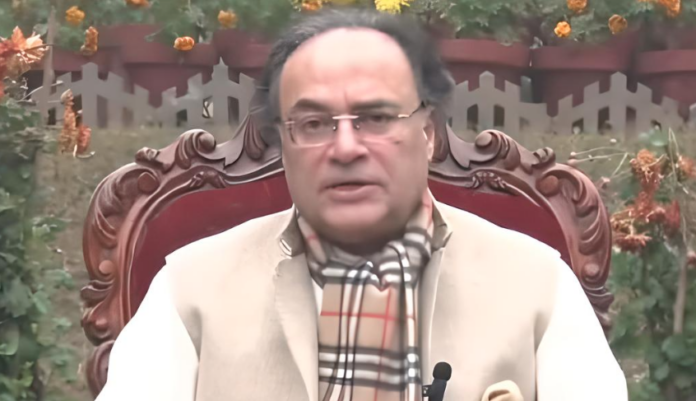Federal Minister for Finance and Revenue, Senator Muhammad Aurangzeb on Sunday reaffirmed his government’s commitment to promoting export-led growth, identifying agriculture and Information Technology (IT) as the twin sectors to drive Pakistan’s sustainable economic growth.
Speaking to farmers and stakeholders in Kamalia (Toba Tek Singh), Aurangzeb emphasized that agriculture and IT were crucial to Pakistan’s economic future, saying, “We are very clear, agriculture and IT have to lead this country as we move forward.”
He said that the International Monetary Fund (IMF) program is focused on stabilization and made it clear that if agriculture and IT face difficulties it was because of us, so we should find solution and promote these sectors for sustainable economic development.
Aurangzeb expressed concern that despite numerous research institutions working to develop the agriculture sector, they have could not produce desired results in promoting crop yields. He noted that a significant portion of finances (80%) go towards salaries, leaving only 20% for research work, which he said should have been otherwise.
The minister stated that the government has successfully achieved macroeconomic stability, a crucial foundation for GDP growth. Building on this achievement, Pakistan’s economy is poised to transition towards sustainable growth from 2025 onwards.
Notably, this claim of economic stability isn’t just a government assertion, but has also been corroborated by independent sources, lending credibility to the country’s economic progress, he added.
Highlighted achievements he said, government was successful in ensuring macroeconomic stability, reducing inflation to a single digit, and decreasing interest rates. He also mentioned the increase in consumption of cement and fertilizer, as well as a 58% surge in auto-sales, as indicators of the government’s prudent policies.
Aurangzeb reiterated the government’s commitment to bringing reforms in taxation, energy, and State-Owned Enterprises (SOEs) sectors. He emphasized the need to improve Pakistan’s tax-to-GDP ratio, which currently stands at 9-10%, and aims to increase it to 13.5%. The minister also announced plans to simplify the taxation process, ensure digitization, and reduce human intervention.
On energy, Aurangzeb expressed hope that energy tariffs would come down, and efforts are underway to check leakages in DISCOS by bringing reforms with private sector engagement. He reiterated that the government’s role is to ensure regulations, while the private sector should lead the economy.
The minister expressed intention to shut down Pakistan Agricultural Storage and Services Corporation (Passco) and create an alternative mechanism for maintaining strategic reserves, may be in private sector. He also questioned the effectiveness the Higher Education Commission
The minister cited Sialkot as a role model for self-sufficiency and Kamalia Khaddar as a world brand, urging stakeholders to learn from these examples to drive the economy forward.
Aurangzeb assured farmers and stakeholders of his full support in addressing their grievances, emphasizing the government’s commitment to serving the people of Pakistan.
He said, the government was determined to go to stakeholders at their doorsteps to benefit from their suggestions instead of merely sitting in Islamabad. “If we say we are here to serve the people of Pakistan, then we have to go wherever people are,” he said adding the process of whole budget would be done by coming to stakeholders.




